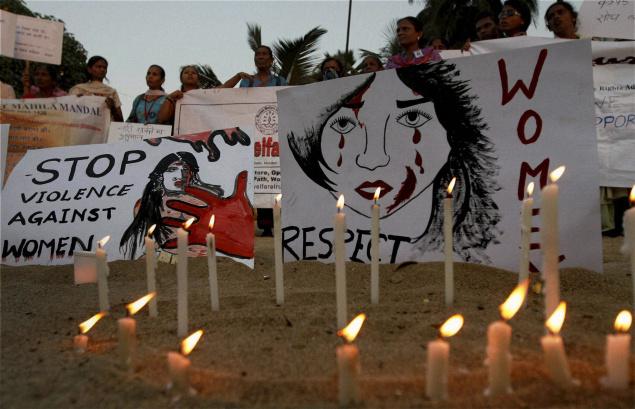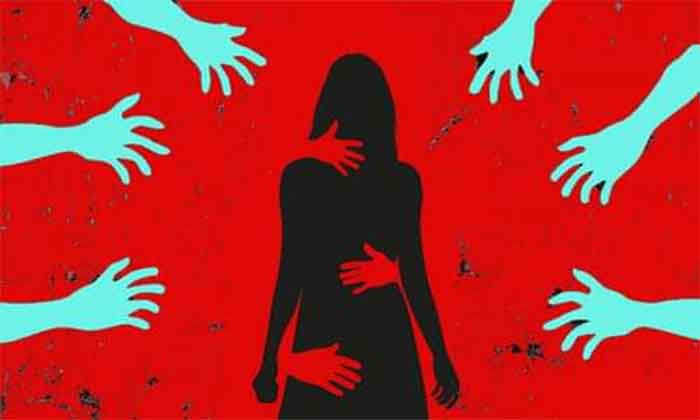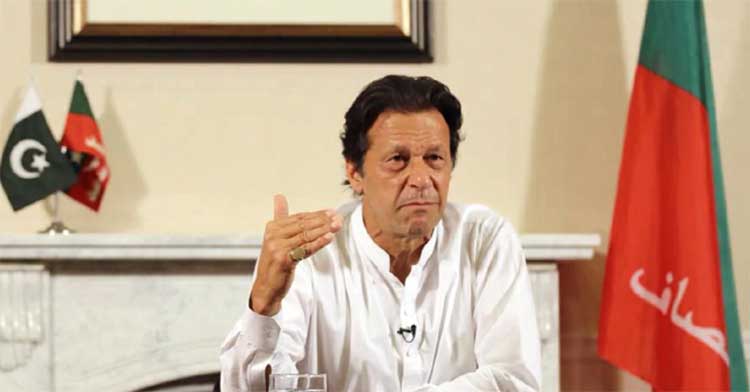
Commoners in Bangladesh are raising their voices against rape. There are protest march, meetings, stand-ins.
Days ago, an incident of a rape came out to public light. The victims were two university-students. The incident occurred weeks ago in the capital city of Dhaka. But, the victims dared not to lodge any complaint with the concerned authority as the perpetrators were from rich families. There were complaints of negligence on the part of an official supposed to take action.
But the media instantly took up the issue, and tried its best to bring to light the entire series of incidents: the powerful’s “game” with honor of the ordinary, the threat to hush the act of “bravery”, the ploy to not record it officially. The Dhaka press, electronic media and online news outlets are full with reports for the last few days on the developments of the incident. A few of the press reports cited powerful utterances of the powerful son of the rich person: “I’ll hack you to death and make the pieces vanish”, a threat to the victims; “my father will spend a billion Taka [Bangladesh currency, about 80 Taka equals to a US dollar] to hush the incident”. (Dainik Ittefaq, a leading Baanglaa daily from Dhaka, May 13, 2017)
At the very onset of the developments, commoners raised their voices over internet-based social media network (ISM). There were hundreds of chidings, laments, condemnations, rejections, protests and demands. The commoners were questioning the powerful, the powerful hands of the powerful, the tricky hands of the rich. They were connecting the heinous act and the wealthy. Their questionings spanned from individual rich to the system. They were expressing skepticism about the possibility of proper delivery of fairness.
Within days, the concerned agency had to jump into action, form more than one investigation committees, send a concerned official on leave, apprehend two of the five absconding “brave boys” from a north-eastern city, a few hundred miles from Dhaka.
At the same time, organizations and alliances including a few student organizations and the Gana Jaagaran Mancha organized protest meetings, stand-ins and protest-march at city centers. A few of the slogans in the mobilizations questioned the state, the administration and the society. The voice of the commoners’, yet subdued and unorganized, was felt around.
The violation-incident was preceded and followed by similar incidents around the country. The Dhaka-news-media carries these reports. As for example, in a district near Dhaka, a farm-laborer committed suicide as he failed to found any sympathetic ear to the incident of his young daughter’s dishonor.
An “amazing” aspect within these series of incidents is the “strange” silence” of political parties claiming to be progressive, to be pro-people, to be pro-poor! Probably, these organizations did not consider the incident as part of political question. Probably, the issues of safety and honor of citizens are “not” political issues to these organizations. Probably, the issues are to be taken care of by organizations active with social issues, NGO, the organizations pushed by their donors to fill-in political vacuum created by many political non-activities of apparently progressive political organizations, other petty-organizations, and by the so-called civil society, the individuals having no constituency and posing as conscience of the nation. Probably, the apparently progressive political organizations are busy with mechanism of coming-election-equation (?). Probably, it’s beyond comprehension of commoners who find “strange” silence on the part of pro-poor, pro-people, pro-radical change appearing political organizations on major and fundamental issues of life, of economy, society and politics. In this time, traders’ organizations raise and debate aspects related to VAT while it’s difficult to find any serious discussion on the issue by the pro-people, pro-poor appearing political organizations (PPP). Examples of similar inactivity by the PPPs are abounding.
But, the signals the society is trying to convey are significant. Politicians and political scientists will look into these, no doubt. Any politician standing for status quo will get annoyed with these signals while any politician standing for radical change will get engaged with serious, persistent and consistent political activities with the aim of reaching the people, with the aim of creating secure and honorable people’s space that helps organizing democratic movement.
Rene Dumont, the famous economist from France, was invited to Bangladesh after the country attained independence. He was requested to propose a few ideas about reconstruction of Bangladesh, a country burned, ravaged, destroyed by the occupying forces from Pakistan. One of his observations for a building up a Sonar Baanglaa, a prosperous Bengal, was: Ensure women’s safe atmosphere for fearless, unhindered movement with full honor.
Today, women constitute a major part of labor force in the country. They are not engaged just with the garments sector; their presence is felt in construction, skin and hide, recycling, and agricultural sectors also. A major portion of micro credit (MC) debtors are women while capital invested through MC is mainly in the areas of artisanal and cottage industries; and commodities produced by the MC debtors mainly reach local markets. Anyone can easily draw a few conclusions based on these aspects, which are important indicators. These aspects are related to capital, market, their development, relations these establish, and development in the society. Anyone can put the issue of women within this perspective, and, can find out the importance of the issue. Safety of women is not only an issue related to labor, but to capital also. These are known to all, especially to the PPPs. And, all after these, the issue of women’s honor is left to others by the PPPs. It’s really, a time-“unknown”, when the politically unorganized citizens active in the internet-based social media network easily are connecting the issues of dishonor of women and the rich but the PPPs find no class issue on the question, when millions of poor-women, women industrial workers walk to and fro their workplaces at early-dawn, after dusk, even, at places, at near-mid-night. Is the time beyond comprehension of ordinary citizens? Time will answer the question.
Farooque Chowdhury, writing from Dhaka, authored/edited no other books in English till today other than the following books: Micro Credit: Myth Manufactured (ed.), The Age of Crisis, and What Next? The Great Financial Crisis (ed.).














































